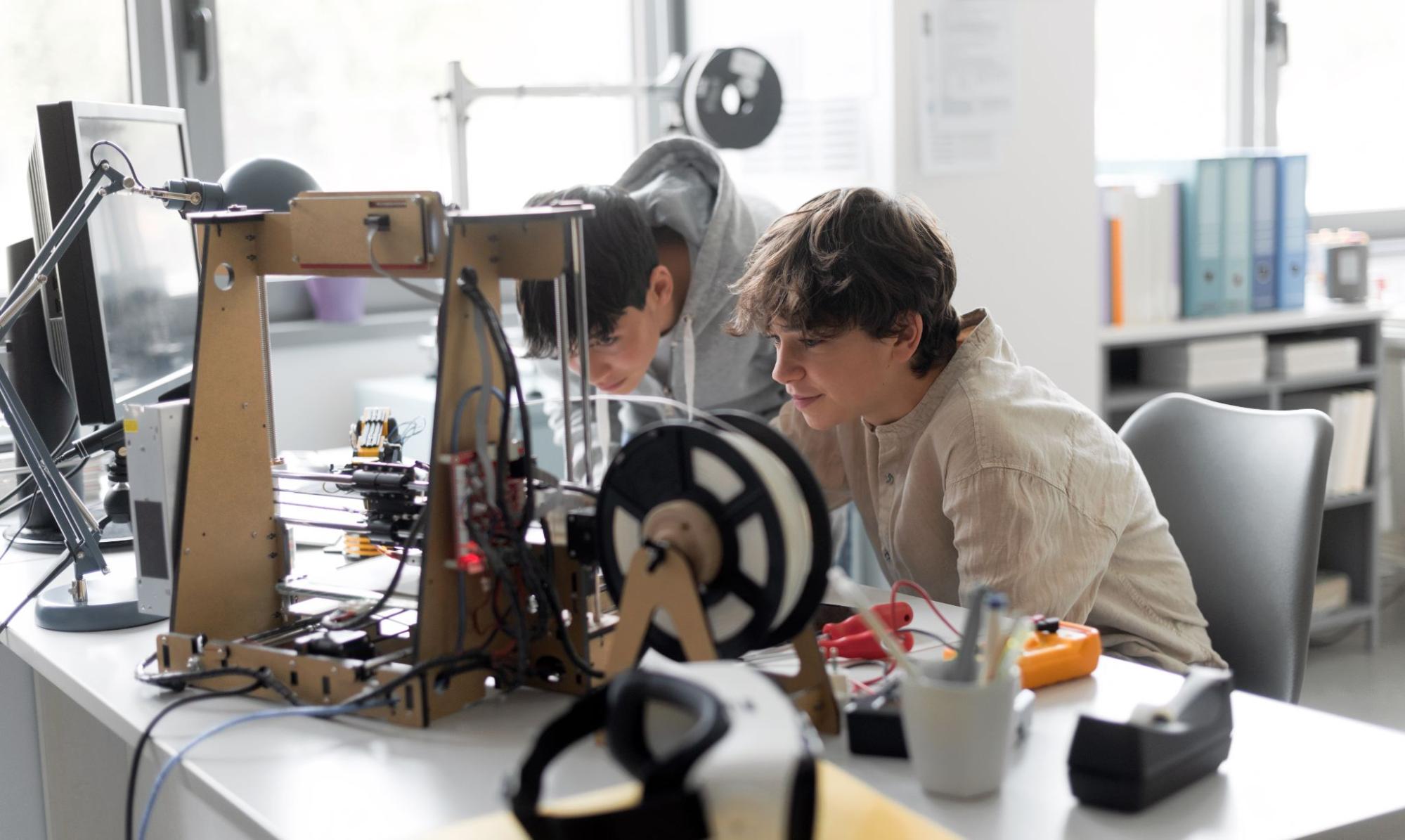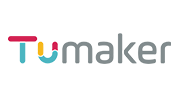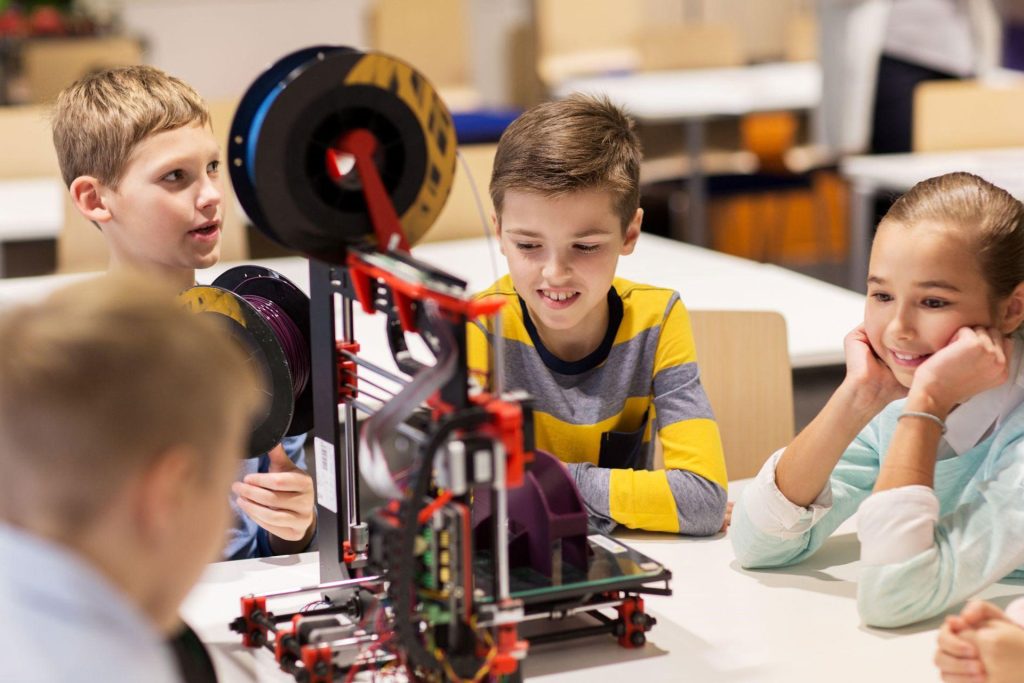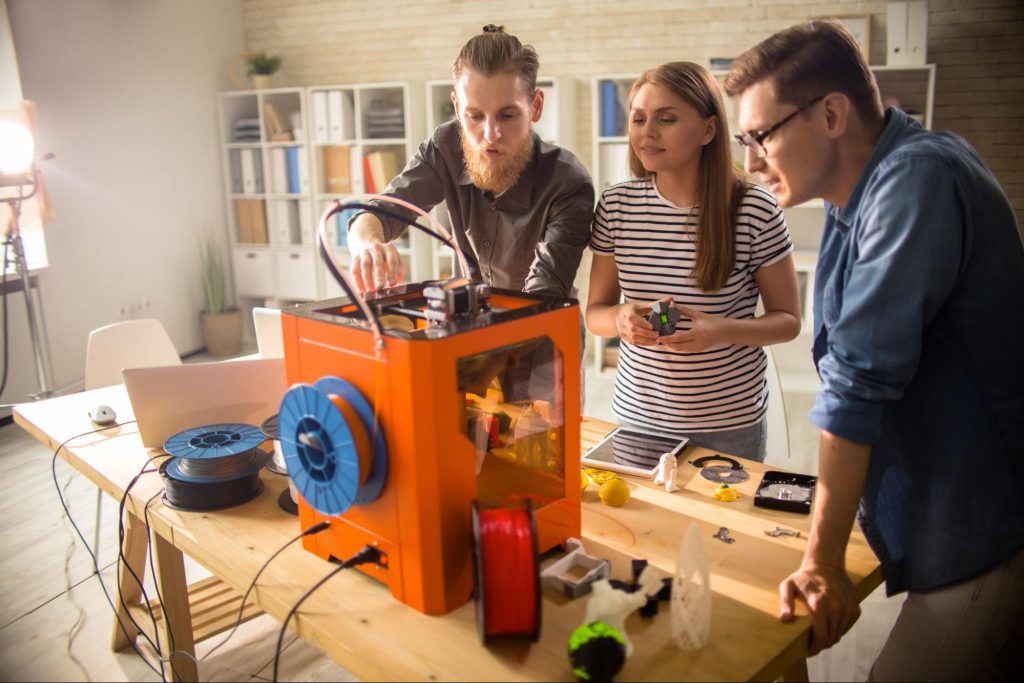How Fab Labs are Revolutionizing Innovation and Manufacturing

Gone are the days when creating a prototype meant months of waiting and huge costs. Now, all you need is a laptop, some creativity, and access to a Fab Lab. Around the world—and now increasingly in the Philippines—Fab Labs are reshaping how we innovate, build, and solve real-world problems. But what is a Fab Lab, and why is it such a game-changer for manufacturing and innovation?
On This Page
- What is a Fab Lab?
- Importance of Fab Labs
- How Fab Labs Support Local Communities
- How a Fab Lab Helps the Manufacturing Industry
What is a Fab Lab?
To simply put—think of a Fab Lab (fabrication laboratory) as a high-tech workshop where you can turn your ideas into real things. It’s filled with tools like 3D printers, laser cutters, and machines that can shape or cut materials.
No matter if you’re a student with a school project, a startup founder with a big idea, or just someone who loves building things, a Fab Lab gives you the space to create. You can design something on your laptop and bring it to life—right there in the lab.
Related: What is a Fab Lab? A Beginner’s Guide to Digital Fabrication Spaces
The idea started at MIT, and today, Fab Labs can be found all over the world. The presence of digital fabrication spaces in the Philippines provides access to high-tech tools, fostering creativity and innovation. These spaces are crucial in empowering Filipinos across schools, communities, and innovation centers, and play a key role in building a culture of local innovation while supporting the next generation of makers and entrepreneurs.
Importance of Fab Labs
Fab Labs aren’t just rooms full of high-tech tools—they’re changing how we solve problems, teach students, and build products. Here’s why they matter:
1. They Make Innovation More Accessible
Before Fab Labs, building a prototype meant spending a lot of money and outsourcing manufacturing. Today, thanks to digital fabrication and open-source tech, anyone—from students to solo inventors—can turn an idea into a real product.
In the Philippines, where access to advanced tools can be limited, Fab Labs come in handy when breaking down those barriers. These spaces give local communities access to technology that was once out of reach.
2. They Encourage Hands-On, Real-World Learning
One of the biggest benefits of a Fab Lab is how it transforms learning. Think of it as a high-tech classroom where students don’t just study theories—they build actual things.
For example, at the College of Fine Arts in UP Diliman, there’s a Fab Lab where students, teachers, and even entrepreneurs can get hands-on with digital fabrication tools. This space turns classroom concepts into real, tangible projects.
3. They Speed Up Product Development for Startups
Got a new product idea? In a Fab Lab, you can design it, 3D print a prototype, test it, and improve it—all in one space.
This rapid prototyping process is a game-changer for Philippine startups and entrepreneurs. Instead of waiting weeks or months to develop a product, they can move faster, test their ideas quickly, and bring them to market sooner.
Related: How 3D Printing in the Philippines is Helping to Reduce Manufacturing Costs
How Fab Labs Support Local Communities
Beyond innovation, Fab Labs also play a big role in community development.
1. Job Creation and Local Enterprises
Fab Labs help kickstart small manufacturing businesses by giving access to tools that would otherwise be too costly. Local furniture makers, fashion designers, and craftspeople now use Fab Labs to design and produce goods with precision and flair.
In 2022, the Department of Trade and Industry (DTI) and Iloilo Science and Technology University (ISAT U) invested over 18 million pesos to support MSMEs through a Fab Lab upgrade in Western Visayas. The goal was to inspire local entrepreneurs to develop new products and prototypes using advanced tools and technology.
2. Bridging the Urban-Rural Gap
One of the most impressive aspects of Fab Labs in the Philippines is how they bring opportunities to rural areas. In places where access to tech is limited, these spaces introduce a whole new world of possibility.
By offering training in digital fabrication, electronics, and 3D design, these labs empower residents with skills for the future—reducing the brain drain from provinces to cities.
How a Fab Lab Helps the Manufacturing Industry
Fab Labs might be small, but they’re making a big difference in the Philippine manufacturing scene. These digital workshops help small and medium businesses save time, lower costs, and keep up in a fast-changing market.
1. Faster Prototyping, Less Waste
One of the biggest benefits of using a Fab Lab for manufacturing is rapid prototyping. Instead of waiting weeks or spending a lot on outsourced production, businesses can design and build prototypes using digital fabrication tools like 3D printers, laser cutters, and CNC machines.
This leads to faster product testing, less material waste, and shorter time-to-market—especially useful for startups and MSMEs looking to stay competitive.
2. Supporting Local Production
With a Fab Lab, manufacturers in the Philippines can produce custom parts, packaging, molds, and even small-batch products in-house. This supports local sourcing, cuts costs on importing components, and helps businesses be more self-sufficient.
Industries like furniture, fashion accessories, electronics, and packaging are using Fab Labs to create high-quality products right here in the Philippines.
3. Helping MSMEs Scale Up
For MSMEs that don’t have the budget for large-scale manufacturing tools, Fab Labs offer an affordable way to experiment, test new products, and collaborate with local talent.
Some Fab Labs even connect businesses with students, engineers, and designers—creating a hub for innovation, collaboration, and Filipino-made product development.
4. Merging Traditional Craft with Digital Tools
Keep in mind that Fab Labs aren’t here to replace traditional skills—they enhance them. Craftsmen can use digital tools to scale up handcrafted products or create new designs, blending tradition with modern technology.
This mix is especially valuable in industries like custom woodworking, handicrafts, and product design, where creativity and speed both matter.
Ready to innovate? Find a Fab Lab in the Philippines near you and start building—your next big idea could be just a project away! Contact us today!


 3D Printing
3D Printing  CNC Lathe
CNC Lathe  Desktop Filament Making
Desktop Filament Making  3D Scanning
3D Scanning  CNC Milling
CNC Milling  Packaging & Labeling
Packaging & Labeling  Bandsaw Cutting
Bandsaw Cutting  CNC Router
CNC Router  Vacuum Forming
Vacuum Forming  CNC Industrial
CNC Industrial  CNC Surface Grinding
CNC Surface Grinding  Waterjet Cutter
Waterjet Cutter 

















